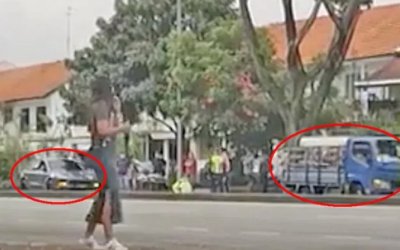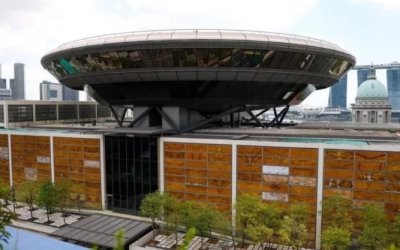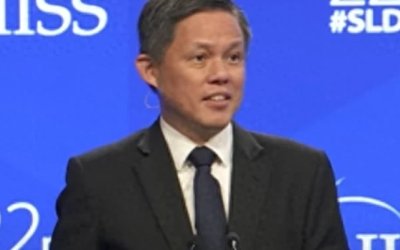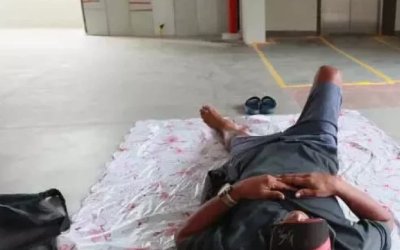2024年5月8日,新加坡內政部長尚穆根在國會發布新加坡國家禁毒政策的部長聲明,聲明主要涵蓋四個方面,本文重點闡述民眾對禁毒政策的支持和政府為禁毒而做的不懈努力。
以下內容為新加坡眼根據國會英文資料翻譯整理:
我現在要談談公眾對我國禁毒方針的大力支持。
由於我們對使用死刑的理由、情況和保障措施採取了坦率和公開的態度,因此得到了民眾的廣泛支持。內政部進行的調查顯示,事實上,在過去兩年中,死刑的支持率有所上升。
在2021年內政部的一項調查中,74%的受訪者同意或非常同意死刑應該用於最嚴重的犯罪,包括販毒。去年(2023年),我們重新進行了這項調查。調查結果顯示,77%的受訪者表示同意或非常同意。在統計意義上,這一比例提高了約三個百分點。
2021年的調查還發現,約 66% 的受訪者同意或非常同意強制死刑是對販運大量毒品的適當懲罰。在去年(2023年)進行的調查中,69%的受訪者表示同意或非常同意,幾乎每10人中就有7人同意或非常同意,在統計上也有顯著增長。內政部將在今年晚些時候發布完整報告。
這是相當了不起的,因為大家有時可能會聽到激進人士和其他人說:死刑是有爭議的,對它的支持正在減弱等。事實上,情況恰恰相反。事實上,對死刑的支持在統計上有顯著增加。這表明新加坡人理解有必要用死刑來處理最嚴重的罪行。
我還要提及另一項調查。2023 年,全國禁毒委員會(NCADA)進行了一項調查。近91%的人表示支持新加坡禁毒政策。這是去年的情況。87%的人同意,我們的禁毒法律能夠有效地使我們相對遠離毒品。我們獲得如此高的支持率,是因為新加坡人相信政府會做正確的事,為新加坡做正確的事。
僅在過去一年,我和我的同事就這個問題與成千上萬的新加坡人進行了交流。因此,當理察-布蘭森先生提出異議時,他並沒有意識到我們認真履行職責,我們對新加坡人負責,我們每年與成千上萬的新加坡人交談,我們知道新加坡人支持什麼。絕大多數新加坡人都知道並理解事實和現實,以及政府為什麼說死刑是必要的。
議長先生,現在請允許我談談內政部未來幾年的計劃,特別是我們為解決青少年毒品問題所做的不懈努力。
去年,我們成立了青少年毒品預防部際委員會(IMC)。我在供應委員會的辯論中談到了這一點。IMC成員已開始推行禁毒計劃,以提高公眾對毒品危害的認識,並動員主要的社區領袖,強化我們的禁毒信息。讓我分享幾個例子。
新加坡體育局已開始把預防毒品教育納入年輕運動員的計劃和課程,並強化積極的生活價值觀,提醒我們的年輕人追求卓越,同時保持身心健康。
我們的學校將把與毒品相關的主題納入學校課程,將其擴展到其他科目,例如綜合科目。在我們的高等教育機構 (IHL) 中,這些信息將在各種場合得到強化,例如新生入學教育和學生出國前的簡報會。
從今年開始,我們將推出「毒品受害者紀念日」。這是為了讓我們的社區團結起來,提醒我們吸毒者的家人和親人所遭受的傷害、傷害和創傷。我們的目標是讓人們認識到,毒品造成的危害是深遠的,需要社會做出強有力的回應。
學校和 IHL 將與中央肅毒局(CNB)合作,在紀念日組織各種活動,如課程、展覽和講座。還將為中學後延續教育機構的青少年舉辦徵文比賽,以鼓勵他們討論和反思吸毒的影響。這是我們邁出的重要一步。我們希望藉此以一種非常有影響力的方式,或儘可能有影響力的方式,讓更多的人,特別是年輕人,了解毒品造成的危害。
今年5月17日,將在義安城市民廣場舉行首屆紀念活動。我們將舉行燭光晚會,以緬懷吸毒受害者,不僅是新加坡的受害者,還有來自世界各地的受害者,因為世界各地的受害者都值得我們的同情和關心。
當然,這將包括新加坡的受害者,包括被殘忍殺害的老母親和祖母、被自己的監護人無情毆打致死的兩歲幼兒,以及無數被毒品顛覆生活的家庭成員。這些人值得我們同情。
活動結束後,巡迴展覽將於 5 月至 7 月在新加坡 8 個不同地點舉行。我強烈鼓勵新加坡人參觀這些展覽,參加這些活動,了解全球和本地的毒品形勢,聲援我們的禁毒鬥爭。
議長先生,總之,我們的禁毒政策是有效的。但是,毒品形勢仍然充滿挑戰,國外如此,國內也是如此。我們必須有力地應對這些挑戰,以免我們這一代人染上毒癮,這樣,我們的後代能夠繼承一個安全的、無毒品的國家,擁有我們今天所享有的同樣環境。[掌聲]

以下是英文質詢內容:
I will now speak about the strong public support for our drug control approach.
There is broad support from our population because we have been upfront and open about the rationale, circumstances and the safeguards on the use of the death penalty. Surveys conducted the Ministry of Home Affairs (MHA) show that support for the death penalty has, in fact, gone up in the last two years.
In a 2021 MHA survey, 74% of the respondents agreed or strongly agreed that the death penalty should be used for the most serious crimes, including drug trafficking. We redid that survey last year, in 2023. It now shows that 77% of the respondents agreed or strongly agreed. This is a statistically significant increase of about three percentage points.
The 2021 survey also found that about 66% of the respondents agreed or strongly agreed that the mandatory death penalty is an appropriate punishment for trafficking a significant amount of drugs. In the 2023 survey, last year, 69%, almost seven in 10, agreed or strongly agreed, again, a statistically significant increase. MHA will be publishing the full report later this year.
This is quite remarkable because Members might sometimes come across activists and others saying: the death penalty is controversial, support for it is weakening and so on. In fact, on the contrary, we are seeing the reverse. Support for the death penalty has, in fact, increased in a statistically significant way. It shows that Singaporeans understand the need for the death penalty to deal with the most serious crimes.
I will refer to yet another survey. In 2023, the National Council Against Drug Abuse (NCADA) conducted a survey. Almost 91% expressed support for Singapore’s drug-free approach. This is last year. And 87% agreed that our drug laws are effective in keeping us relatively drug-free. We have these high levels of support because Singaporeans trust the Government to do the right thing and to do right by Singapore.
My colleagues and I have engaged thousands of Singaporeans on this issue in just the past year alone. So, when Mr Richard Branson comes in to argue, he does not realise that we take our duties seriously, we are accountable to Singaporeans, we speak with thousands of them every year and we know what Singaporeans support. And the vast majority of Singaporeans know and understand the facts and reality, and why the Government says the death penalty is necessary.
Mr Speaker, let me now say something about my Ministry’s plans for the coming years, specifically our upstream efforts to address the drug problem amongst the young.
We formed the Inter-Ministry Committee (IMC) on Drug Prevention for Youths last year. I spoke about this at the Committee of Supply debate. Members of the IMC have started running anti-drug programmes to enhance awareness on the harms of drugs and mobilise key community leaders and amplify our anti-drug messages. Let me share some examples.
SportSG has begun to incorporate preventive drug education in its programmes and curricula for our young athletes and to reinforce positive life values to remind our youths about pursuing excellence while keeping their minds and bodies healthy.
Our schools will cover drug-related topics in their school curricula by extending it to other subjects, such as General Paper, for example. And in our Institutes of Higher Learning (IHLs), these messages will be reinforced at various junctures, such as orientation sessions and pre-departure briefings before students go on overseas trips.
And starting this year, we will introduce a 「Drug Victims Remembrance Day」. This is for our communities to rally together to remind ourselves of the harm, hurt and trauma which the families and loved ones of drug abusers suffer and have suffered. Our aim is to drive home the message that the harms drugs cause are far-reaching and require a strong response from society.























